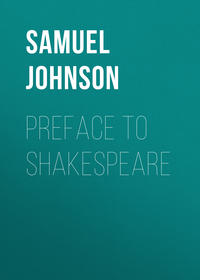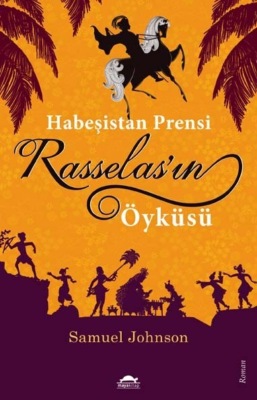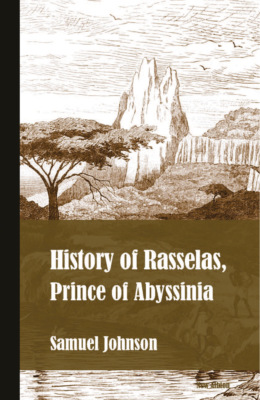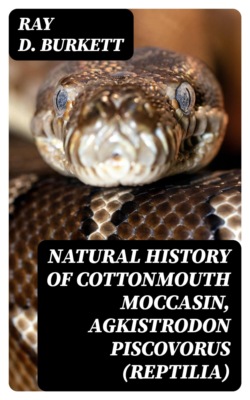Kitabı oku: «Preface to Shakespeare», sayfa 5
Notes are often necessary, but they are necessary evils. Let him, that is yet unacquainted with the powers of Shakespeare, and who desires to feel the highest pleasure that the drama can give, read every play from the first scene to the last, with utter negligence of all his commentators. When his fancy is once on the wing, let it not stoop at correction or explanation. When his attention is strongly engaged, let it disdain alike to turn aside to the name of Theobald and Pope. Let him read on through brightness and obscurity, through integrity and corruption; let him preserve his comprehension of the dialogue and his interest in the fable. And when the pleasures of novelty have ceased, let him attempt exactness; and read the commentators.
Particular passages are cleared by notes, but the general effect of the work is weakened. The mind is refrigerated by interruption; the thoughts are diverted from the principal subject; the reader is weary, he suspects not why; and at last throws away the book, which he has too diligently studied.
Parts are not to be examined till the whole has been surveyed; there is a kind of intellectual remoteness necessary for the comprehension of any great work in its full design and its true proportions; a close approach shews the smaller niceties, but the beauty of the whole is discerned no longer.
It is not very grateful to consider how little the succession of editors has added to this authour's power of pleasing. He was read, admired, studied, and imitated, while he was yet deformed with all the improprieties which ignorance and neglect could accumulate upon him; while the reading was yet not rectified, nor his allusions understood; yet then did Dryden pronounce "that Shakespeare was the man, who, of all modern and perhaps ancient poets, had the largest and most comprehensive soul. All the images of nature were still present to him, and he drew them not laboriously, but luckily: When he describes any thing, you more than see it, you feel it too. Those who accuse him to have wanted learning, give him the greater commendation: he was naturally learned: he needed not the spectacles of books to read nature; he looked inwards, and found her there. I cannot say he is every where alike; were he so, I should do him injury to compare him with the greatest of mankind. He is many times flat and insipid; his comick wit degenerating into clenches, his serious swelling into bombast. But he is always great, when some great occasion is presented to him: No man can say, he ever had a fit subject for his wit, and did not then raise himself as high above the rest of poets,
"Quantum lenta solent inter viburna cupressi."
It is to be lamented, that such a writer should want a commentary; that his language should become obsolete, or his sentiments obscure. But it is vain to carry wishes beyond the condition of human things; that which must happen to all, has happened to Shakespeare, by accident and time; and more than has been suffered by any other writer since the use of types, has been suffered by him through his own negligence of fame, or perhaps by that superiority of mind, which despised its own performances, when it compared them with its powers, and judged those works unworthy to be preserved, which the criticks of following ages were to contend for the fame of restoring and explaining.
Among these candidates of inferiour fame, I am now to stand the judgment of the publick; and wish that I could confidently produce my commentary as equal to the encouragement which I have had the honour of receiving. Every work of this kind is by its nature deficient, and I should feel little solicitude about the sentence, were it to be pronounced only by the skilful and the learned.
SELECTED NOTES FROM SOME OF THE PLAYS
MEASURE FOR MEASURE
There is perhaps not one of Shakespeare's plays more darkened than this by the peculiarities of its Authour, and the unskilfulness of its Editors, by distortions of phrase, or negligence of transcription.
ACT I. SCENE i. (I. i. 7-9.)
Then no more remains:
But that to your sufficiency, as your worth is able,
And let them work.
This is a passage which has exercised the sagacity of the Editors, and is now to employ mine.
Sir Tho. Hanmer having caught from Mr. Theobald a hint that a line was lost, endeavours to supply it thus.
—Then no more remains,
But that to your sufficiency you join
A will to serve us, as your worth is able.
He has by this bold conjecture undoubtedly obtained a meaning, but, perhaps not, even in his own opinion, the meaning of Shakespeare.
That the passage is more or less corrupt, I believe every reader will agree with the Editors. I am not convinced that a line is lost, as Mr. Theobald conjectures, nor that the change of "but" to "put", which Dr. Warburton has admitted after some other Editor, will amend the fault. There was probably some original obscurity in the expression, which gave occasion to mistake in repetition or transcription. I therefore suspect that the Authour wrote thus,
—Then no more remains,
But that to your sufficiencies your worth is abled,
And let them work.
THEN NOTHING REMAINS MORE THAN TO TELL YOU THAT YOUR VIRTUE IS NOW INVESTED WITH POWER EQUAL TO YOUR KNOWLEDGE AND WISDOM. LET THEREFORE YOUR KNOWLEDGE AND YOUR VIRTUE NOW WORK TOGETHER. It may easily be conceived how "sufficiencies" was, by an inarticulate speaker, or inattentive hearer, confounded with "sufficiency as", and how "abled", a word very unusual, was changed into "able". For "abled", however, an authority is not wanting. Lear uses it in the same sense, or nearly the same, with the Duke. As for "sufficiencies", D. Hamilton, in his dying speech, prays that "Charles II. may exceed both the VIRTUES and SUFFICIENCIES of his father."
ACT I. SCENE ii. (I. i. 51.)
We have with a leaven'd and prepared choice.
"Leaven'd" has no sense in this place: we should read "Level'd choice". The allusion is to archery, when a man has fixed upon his object, after taking good aim.—Warburton.
No emendation is necessary. "leaven'd choice" is one of Shakespeare's harsh metaphors. His train of ideas seems to be this. "I have proceeded to you with choice mature, concocted, fermented, leaven'd." When Bread is "leaven'd", it is left to ferment: a "leavn'd" choice is therefore a choice not hasty, but considerate, not declared as soon as it fell into the imagination, but suffered to work long in the mind. Thus explained, it suits better with "prepared" than "levelled".
ACT II. SCENE ix. (II. iii. 11-12.)
Who falling in the flaws of her own youth,
Hath blister'd her report.
Who doth not see that the integrity of the metaphor requires we should read "flames of her own youth."—Warburton.
Who does not see that upon such principles there is no end of correction.
ACT III. SCENE i. (III. i. 13-15.)
Thou art not noble:
For all th' accommodations, that thou bear'st
Are nurs'd by baseness.
Dr. Warburton is undoubtedly mistaken in supposing that by "baseness" is meant "self-love" here assigned as the motive of all human actions. Shakespeare meant only to observe, that a minute analysis of life at once destroys that splendour which dazzles the imagination. Whatever grandeur can display, or luxury enjoy, is procured by "baseness", by offices of which the mind shrinks from the contemplation. All the delicacies of the table may be traced back to the shambles and the dunghill, all magnificence of building was hewn from the quarry, and all the pomp of ornaments, dug from among the damps and darkness of the mine.
ACT III. SCENE i. (III. i. 16-17.)
The soft and tender fork of a poor worm.
"Worm" is put for any creeping thing or "serpent". Shakespeare supposes falsely, but according to the vulgar notion, that a serpent wounds with his tongue, and that his tongue is "forked". He confounds reality and fiction, a serpent's tongue is "soft" but not "forked" nor hurtful. If it could hurt, it could not be soft. In Midsummer-night's Dream he has the same notion.
—With doubler tongue
Then thine, O serpent, never adder stung.
ACT III. SCENE i. (III. i. 32-4.)
Thou hast nor youth, nor age:
But as it were an after dinner's sleep,
Dreaming on both.
This is exquisitely imagined. When we are young we busy ourselves in forming schemes for succeeding time, and miss the gratifications that are before us; when we are old we amuse the languour of age with the recollection of youthful pleasures or performances; so that our life, of which no part is filled with the business of the present time, resembles our dreams after dinner, when the events of the morning are mingled with the designs of the evening.
ACT III. SCENE i. (III. i. 36-8.)
When thou'rt old and rich,
Thou hast neither heat, affection, limb, nor beauty
To make thy riches pleasant.
But how does beauty make "riches pleasant"? We should read "bounty", which compleats the sense, and is this; Thou hast neither the pleasure of enjoying riches thy self, for thou wantest vigour: nor of seeing it enjoyed by others, for thou wantest "bounty". Where the making the want of "bounty" as inseparable from old age as the want of "health", is extremely satyrical tho' not altogether just. —Warburton.
I am inclined to believe that neither man nor woman will have much difficulty to tell how "beauty makes riches pleasant". Surely this emendation, though it is elegant and ingenious, is not such as that an opportunity of inserting it should be purchased by declaring ignorance of what every one knows, by confessing insensibility of what every one feels.
ACT III. SCENE ii. (III. i. 137-8.)
Is't not a kind of incest, to take life
From thine own sister's shame?
In Isabella's declamation there is something harsh, and something forced and far-fetched. But her indignation cannot be thought violent when we consider her not only as a virgin but as a nun.
ACT IV. SCENE viii. (iv. iii. 4-5.)
First here's young Mr. Rash, &c.
This enumeration of the inhabitants of the prison affords a very striking view of the practices predominant in Shakespeare's age. Besides those whose follies are common to all times, we have four fighting men and a traveller. It is not unlikely that the originals of these pictures were then known.
ACT IV. SCENE xiii. (IV. V. 1.)
Duke. These letters at fit time deliver me.
Peter never delivers the letters, but tells his story without any credentials. The poet forgot the plot which he had formed.
ACT V. SCENE vii. (V. i. 448.)
'Till he did look on me.
The Duke has justly observed that Isabel is importuned against all sense to solicit for Angelo, yet here against all sense she solicits for him. Her argument is extraordinary.
A due sincerity govern'd his deeds,
'Till he did look on me; since it is so,
Let him not die. That Angelo had committed
all the crimes charged against him, as far as he could commit them, is evident. The only INTENT which his act did not overtake, was the defilement of Isabel. Of this Angelo was only intentionally guilty. Angelo's crimes were such, as must sufficiently justify punishment, whether its end be to secure the innocent from wrong, or to deter guilt by example; and I believe every reader feels some indignation when he finds him spared. From what extenuation of his crime can Isabel, who yet supposes her brother dead, form any plea in his favour. Since he was good 'till he looked in me, let him not die. I am afraid our Varlet Poet intended to inculcate, that women think ill of nothing that raises the credit of their beauty, and are ready, however virtuous, to pardon any act which they think incited by their own charms.
ACT V. SCENE viii. (v. i. 479 foll.)
It is somewhat strange, that Isabel is not made to express either gratitude, wonder or joy at the sight of her brother.
After the pardon of two murderers Lucio might be treated by the good Duke with less harshness; but perhaps the Poet intended to show, what is too often seen, that men easily forgive wrongs which are not committed against themselves.
The novel of Cynthio Giraldi, from which Shakespeare is supposed to have borrowed this fable, may be read in Shakespeare illustrated, elegantly translated, with remarks which will assist the enquirer to discover how much absurdity Shakespeare has admitted or avoided.
I cannot but suspect that some other had new modelled the novel of Cynthio, or written a story which in some particulars resembled it, and that Cinthio was not the authour whom Shakespeare immediately followed. The Emperour in Cinthio is named Maximine, the Duke, in Shakespeare's enumeration of the persons of the drama, is called Vincentio. This appears a very slight remark; but since the Duke has no name in the play, nor is ever mentioned but by his title, why should he be called Vincentio among the "Persons", but because the name was copied from the story, and placed superfluously at the head of the list by the mere habit of transcription? It is therefore likely that there was then a story of Vincentio Duke of Vienna, different from that of Maximine Emperour of the Romans.
Of this play the light or comick part is very natural and pleasing, but the grave scenes, if a few passages be excepted, have more labour than elegance. The plot is rather intricate than artful. The time of the action is indefinite; some time, we know not how much, must have elapsed between the recess of the Duke and the imprisonment of Claudio; for he must have learned the story of Mariana in his disguise, or he delegated his power to a man already known to be corrupted. The unities of action and place are sufficiently preserved.
HENRY IV
None of Shakespeare's plays are more read than the first and second parts of Henry the fourth. Perhaps no authour has ever in two plays afforded so much delight. The great events are interesting, for the fate of kingdoms depends upon them; the slighter occurrences are diverting, and, except one or two, sufficiently probable; the incidents are multiplied with wonderful fertility of invention, and the characters diversified with the utmost nicety of discernment, and the profoundest skill in the nature of man.
The prince, who is the hero both of the comick and tragick part, is a young man of great abilities and violent passions, whose sentiments are right, though his actions are wrong; whose virtues are obscured by negligence, and whose understanding is dissipated by levity. In his idle hours he is rather loose than wicked, and when the occasion forces out his latent qualities, he is great without effort, and brave without tumult. The trifler is roused into a hero, and the hero again reposes in the trifler. This character is great, original, and just. Piercy is a rugged soldier, cholerick, and quarrelsome, and has only the soldier's virtues, generosity and courage.
But Falstaff unimitated, unimitable Falstaff, how shall I describe thee? Thou compound of sense and vice; of sense which may be admired but not esteemed, of vice which may be despised, but hardly detested. Falstaff is a character loaded with faults, and with those faults which naturally produce contempt. He is a thief, and a glutton, a coward, and a boaster, always ready to cheat the weak, and prey upon the poor; to terrify the timorous and insult the defenceless. At once obsequious and malignant, he satirises in their absence those whom he lives by flattering. He is familiar with the prince only as an agent of vice, but of this familiarity he is so proud as not only to be supercilious and haughty with common men, but to think his interest of importance to the duke of Lancaster. Yet the man thus corrupt, thus despicable, makes himself necessary to the prince that despises him, by the most pleasing of all qualities, perpetual gaiety, by an unfailing power of exciting laughter, which is the more freely indulged, as his wit is not of the splendid or ambitious kind, but consists in easy escapes and sallies of levity, which make sport but raise no envy. It must be observed that he is stained with no enormous or sanguinary crimes, so that his licentiousness is not so offensive but that it may be borne for his mirth.
The moral to be drawn from this representation is, that no man is more dangerous than he that with a will to corrupt, hath the power to please; and that neither wit nor honesty ought to think themselves safe with such a companion when they see Henry seduced by Falstaff.










